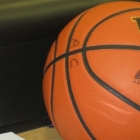BY JEFF FALK
The only reason that the Pennsylvania Interscholastic Athletic Association’s classification system exists is to provide a level playing field, to allow teams of equal size to compete against each other. In the specific case of the Annville-Cleona boys’ basketball team, the PIAA’s classification system falls short of its goal.
The PIAA says the Little Dutchmen are a Class AAA boys’ basketball program. History, tradition and common sense suggests otherwise.
The PIAA’s most recent bi-annual number crunching have made the Little Dutchmen a Class AAA team. To the best knowledge of this reporter, Annville-Cleona has always been a Class AA school in the sport.
The good news is that the Little Dutchmen will return to its traditional classification next year. But that seems to be little consolation for this current – and last year’s – group of Little Dutchmen.
“It’s a small school. It’s a small township,” said Annville-Cleona head coach Justin Edwards, who once played for the Little Dutchmen. “It’s land-locked. From a playing perspective, growing up we were an AA school. Those bigger AAA schools have a bigger draw than we do. We just don’t have the numbers to compete year-in and year-out with those top class AAA schools.”
“Yeah, I’d feel better if our boys would be playing AA,” said A-C interim athletic director Dick Eshenmann. “It’s not the best situation, but I think it is an area where the PIAA has struggled to make it fair.
“Coaches do look forward to districts,” he added, “because it gives them a chance to see how they compare with other teams their size.”
 What the PIAA attempts to do in each sport is distribute every member school in the state evenly throughout each of its four classifications.
What the PIAA attempts to do in each sport is distribute every member school in the state evenly throughout each of its four classifications.
In Class AA boys’ basketball, the difference between the number of male enrolled students of the bigger schools and the smaller schools is less – 12 male students – than any other classification. And in Class AAA boys’ basketball, the difference between the numbers of males enrolled of the bigger schools and smaller schools is greater – 298 – than any other classification.
What that means for Annville-Cleona, which apparently just met the PIAA’s requirements for a Class AAA school, is that it must compete with some schools that are more than twice its size – and others which are approaching three times its size.
“It’s sort of sad,” said Edwards. “From this year’s team to last year’s team, I don’t want to say that they were being punished, but it’s a hard thing to explain to 15-, 16-, 17-year-old kids.
“I know Mark (former head coach, Linebaugh) wasn’t happy with the change,” Edwards added. “From the way I understand it, the male enrollment was ten kids off.”
 Annville-Cleona is the smallest public school in Lebanon County, one of the smallest counties in Pennsylvania, area-wise.
Annville-Cleona is the smallest public school in Lebanon County, one of the smallest counties in Pennsylvania, area-wise.
“When you get into districts and sending kids to states,” said Eschenmann, “if they (the PIAA) just said that there would be no more than a 100-student spread, they’d have 20 classifications. So they’ve done the best they can.”
At 6-7 overall, the Little Dutchmen currently stand 29th in the District Three Class AAA power rankings. In Class AA, they would be eighth.
While Annville-Cleona hasn’t given up on the postseason dream, it understands the challenges ahead of it.
“We just have to win every game we can and battle like crazy,” said Edwards. “We have to win the games we should win. If we can continue to work hard, we can give ourselves a shot. The AAA-AA issue is what it is.
“We talk about life lessons,” Edwards continued. “But for a small town like Annville, a district championship is a big deal.”
 “I would agree with that (A-C would have a better chance making districts in Class AA), but it doesn’t always work out that way,” said Eschenmann. “Some schools decide to play up and do well. The size of the school doesn’t always determine the strength of the program.”
“I would agree with that (A-C would have a better chance making districts in Class AA), but it doesn’t always work out that way,” said Eschenmann. “Some schools decide to play up and do well. The size of the school doesn’t always determine the strength of the program.”
There is no debating the fact that qualifying for districts and extending a season can serve as motivation for a scholastic team. A solid, realistic goal for most programs, it can also be seen as a reward for a good year and hard work.
“From a players’ perspective, older players are always looking to win,” said Edwards. “They don’t want to lose a game. They don’t concede a game. Going into a game, you think you’re going to win. You’re planning to win.
“These kids strive for success in everything they do,” Edwards continued. “It’s easy to inspire them. I think we’re improving. These kids are smart kids. They are motivated. Trophies are nice. Championships are nice. But these kids are going to be successful.”